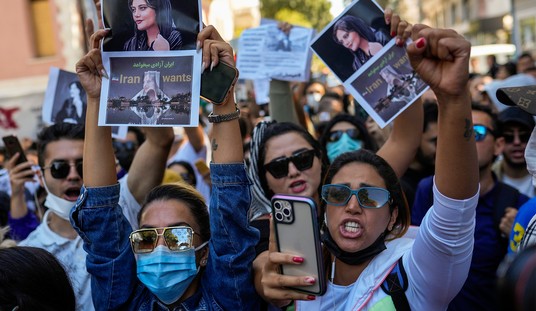Georgia Secretary of State Brad Raffensperger said he will not keep Donald Trump’s name off the ballot during the 2024 election. Democrats in some states are talking about using the 14th Amendment to keep Trump off the ballot in 2024 if he is the Republican nominee. Raffensperger wrote an op-ed published in the Wall Street Journal which he used to explain his thinking on the matter.
For reference, the 14th Amendment dates back to the Reconstruction era. It was written to keep former Confederate officials and leaders from regaining power by holding public office. Historians have questioned if it was meant as a permanent standard. After the 1870s, it mostly went unused until September 2022 when a state judge in New Mexico removed a county commissioner who participated in the riot on January 6, 2021 on Capitol Hill. There were two failed attempts to invoke Section 3 against candidates – Georgia Rep. Marjorie Taylor Greene and North Carolina Rep. Madison Cawthorn. Each case was decided in the courts. Political activists are asking secretaries of state to bar Trump from the ballot unilaterally.
Raffensperger wrote that invoking the 14th Amendment is the latest way of “attempting to short-circuit the ballot box.” He said that since 2018, Georgia has seen losing candidates try to sue their way to victory. In the case of Stacey Abrams, who refused to concede the election as she claimed election mismanagement, the court rejected her case. The same is true of Trump after the 2020 election. “For a secretary of state to remove a candidate would only reinforce the grievances of those who see the system as rigged and corrupt.”
This kerfuffle began when a government watchdog organization, Citizens for Responsibility and Ethics, filed a lawsuit in Washington. The lawsuit seeks to remove Trump from the primary ballot in Colorado – not the presidential ballot, the primary ballot. Most legal experts expect the case to go up to the Supreme Court.
Six voters took part in that lawsuit and the Colorado secretary of state is keeping a close eye on it. They claim the 14th Amendment keeps Trump from ever holding the office again. One thing should be noted in all this, though. Trump has not been charged with insurrection in any of the indictments against him. Even the maniacally partisan Jack Smith passed on a charge of insurrection in Trump’s January 6 case in D.C.
The Editorial Board of the Wall Street Journal wrote about the Colorado case.
Watching this litigation closely is somebody whose opinion matters: Colorado secretary of state Jena Griswold, a Democrat re-elected last year. “I look forward to the Colorado Court’s substantive resolution of the issues,” Ms. Griswold said Wednesday, “and am hopeful that this case will provide guidance to election officials on Trump’s eligibility as a candidate for office.” What a perilous path to go down.
The mob violence at the U.S. Capitol on Jan. 6, 2021, was indisputably awful. But was it an insurrection? “All three branches of the federal government have referred to the January 6th attack as an ‘insurrection,’” the lawsuit argues. It says that includes Members of Congress during Mr. Trump’s second impeachment (despite his eventual acquittal), as well as Mr. Trump’s own Justice Department in detention proceedings for the QAnon shaman.
The lawsuit says “leading constitutional scholars” agree with this view. Well, how about former Tenth Circuit Court of Appeals Judge Michael McConnell? “The terms of Section 3 should not be defined down to include mere riots or civil disturbances, which are common,” he argued last month. “Many of these riots impede the lawful operations of government, and exceed the power of normal law enforcement to control. Are they insurrections or rebellions, within the meaning of Section 3?”
Mr. McConnell: “I would hazard the suggestion that a riot is the use of violence to express anger or to attempt to coerce the government to take certain actions, while insurrections and rebellions are the use of violence, usually on a larger scale, to overthrow the government or prevent it from being able to govern.”
This is a perilous path to go down. Raffensperger is right – voters should decide elections, not courts. That includes the names on the ballots. If Trump wins the Republican nomination, he should be on the ballot in November 2024. Granted, we are in unchartered territory with a potential Republican nominee being under federal criminal indictment and state indictments in Georgia, too. We’ll all find out together how it plays out.








Join the conversation as a VIP Member